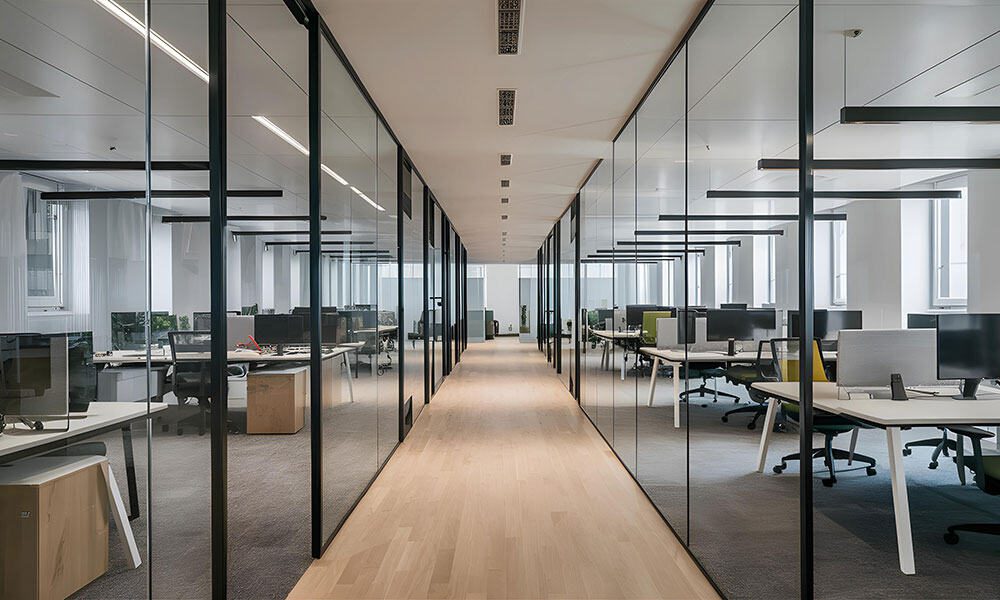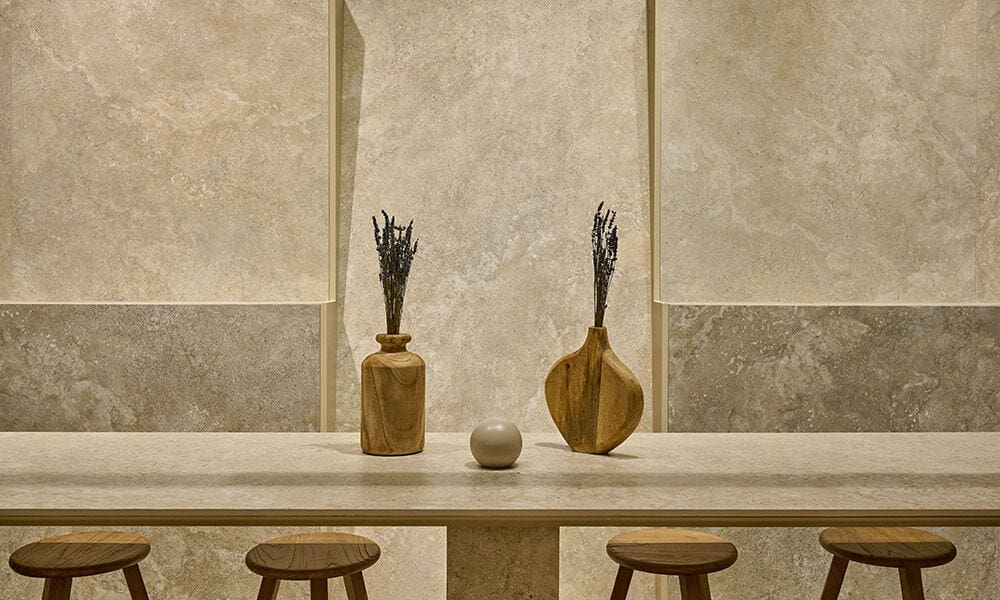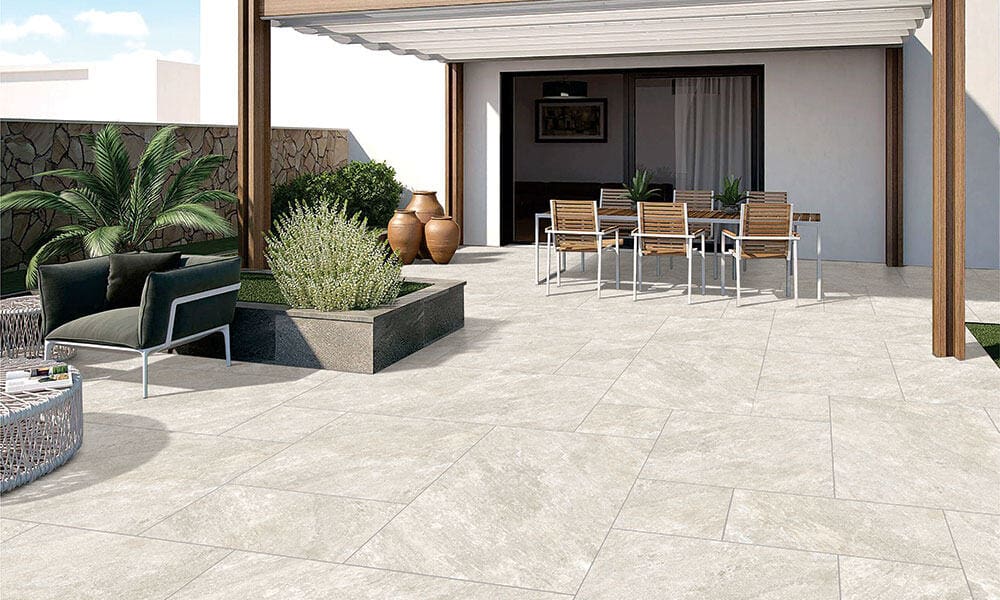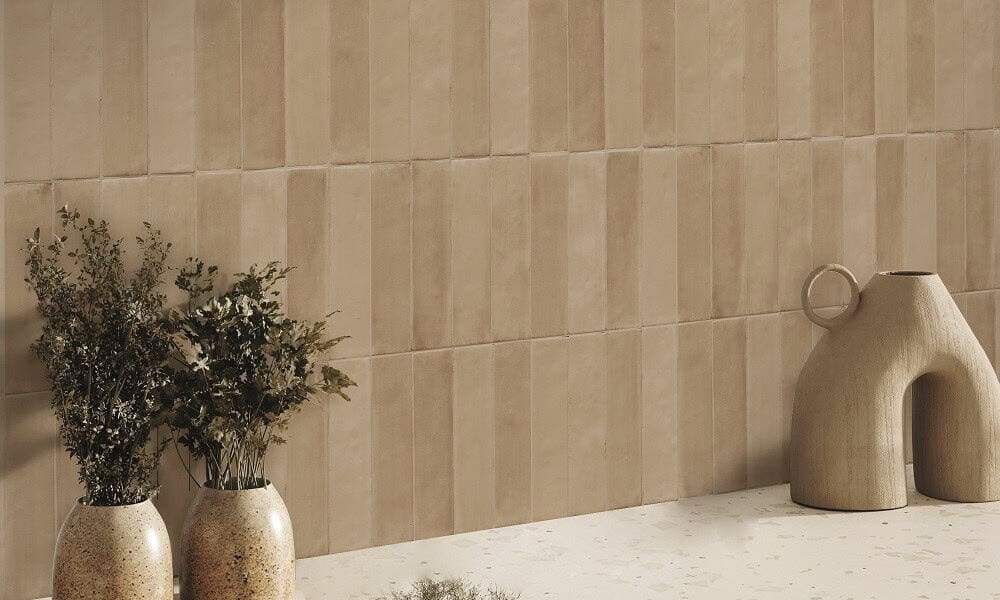Imagine you’re a successful business owner about to renovate your commercial space. You’re set on upgrading your flooring but get bombarded with many choices, from vinyl to carpet tiles; it’s enough to boggle the mind. Knowing which type works better for your specific needs is important when selecting commercial flooring. This guide is set to simplify your decision by comparing key factors such as durability, maintenance, and aesthetics of the popular choices: ceramic and porcelain tiles. But let’s start with an overview of the world of commercial design.
The Essence of Commercial Design
Commercial design is a critical aspect of every business. It refers to turning an office space, a bathroom, or a kitchen into a visually appealing and functional space that complements your business operations and brand image. It’s more than picking out wall tile or flooring materials; it’s about shaping customers’ perceptions of your business. Flooring plays a key role in this design scheme, and it’s important to consider not only its looks but its longevity in high-traffic areas, health and safety features like anti-slip, and ease of cleaning and maintenance when there’s a spill. The right floor tiles can help provide a high-quality, durable finish to your commercial design, enhancing your brand image and offering a smooth customer experience.
Understanding Tiles: An Overview
Tiling is an effective way to spruce up your commercial space, whether in a showroom or a commercial kitchen. They offer stain resistance and durability, are easy to clean and maintain, and can complement any design scheme, from minimalist to extravagant. There are several types of tiles you can consider:
- Ceramic Tiles: These are made from clay heated up at high temperatures. Ceramic tiles might be glazed for added resistance to staining.
- Porcelain Tiles: Like ceramic tiles, porcelain is also made from clay, but it’s typically glazed and offers impervious qualities. They’re more durable, making it perfect for high-traffic areas. These can be either full-body porcelain or unglazed, which changes their level of water resistance.
- Stone Tiles: These tiles come from materials like marble or granite. They’re typically more porous than ceramic and porcelain but offer a unique and aesthetically pleasing finish.
- Mosaic Tiles: These are small tiles, typically made of ceramic, porcelain, or stone, that come together in a mesh to form a pattern or design.
In this guide, we will look in-depth at the pros and cons of porcelain and ceramic tiles as the most common choices for commercial floor tiles.
Ceramic Tiles vs Porcelain Tiles: An In-depth Look
Choosing the right tile for your commercial space can make a significant difference when it comes to both first impressions and long-term durability. Two popular options that you might encounter during your search are ceramic and porcelain tiles.
Ceramic tiles, often a go-to commercial tile flooring option, are made from clay, sand, water and then hardened through heat. The tile isn’t necessarily glazed, allowing for a more natural, earthy look. However, the downside is that they can be slightly porous and may require more maintenance over time, especially when it comes to the grout lines.
On the other hand, porcelain tiles, known for their non-porous and strong nature, are made from a type of clay that’s fired at a higher temperature than ceramic ones. The result is a more durable and easy-to-maintain tile, which is critical, especially in heavy-traffic areas.
Don’t be fooled by their slick, upscale look; porcelain tiles are built to withstand a lot of wear and tear—a key consideration for any business, as it can lead to less downtime due to maintenance or repairs. Moreover, porcelain tiles usually have a less porous surface compared to ceramic tiles, which makes cleaning spills or mopping an easier task.
Key Considerations in Choosing Tile Floors for Commercial Spaces
When choosing the right tile for your commercial space, there are several crucial factors to consider. That’s why we’re providing a practical guide to help you find a tile that suits your specific needs:
- Type of business: Think about the nature of your work and the image you want to project. A law firm would arguably benefit from a different kind of tile than a retail store or a restaurant.
- Design scheme: Ensure that the tile you select, glazed ceramic or porcelain plank tiles, complements your commercial design scheme.
- Foot traffic: Businesses with higher foot traffic might lean towards a highly durable flooring product like porcelain because its slip resistance and easy-to-clean nature make it a good fit for areas with heavy traffic.
- Durability needs: Look for a tile that can withstand constant use and cleaning, especially if you expect it to last at least ten years. The higher the grade of the tile, the more resilience it provides.
- Aesthetic preferences: Does a steel grey or a plank porcelain tile add enough sparkle to your space? Or, perhaps you’d prefer something like a glazed ceramic tile for a traditional warm accent? Your aesthetic preferences play a significant role in the selection process.
Considering these considerations will help you select a type of visually appealing flooring that suits your business’s operational needs and long-term goals. Remember, tiles can influence your business’s functionality and how clients, customers, and visitors perceive your company.
Striking The Balance: Incorporating Tiles Into Your Commercial Space
Striking the perfect balance between style, functionality, and durability can be challenging when incorporating tiles into your commercial space. But, with the right information and approach, it’s much easier than you might think.
Deciding on flooring and walls can significantly influence your organization’s look and feel, not to mention the implications on wear and tear and cleaning requirements. That’s where ceramic and porcelain tiles shine.
Firstly, specify your needs: Are you looking for something sturdy for high-traffic areas, like a restaurant kitchen or retail shop? Are you considering a redo of your office with a modern feel? If so, using steel grey porcelain tiles can give an elegant, contemporary look.
For more vibrant and creative spaces, adding a sparkle with marble or mosaic tiles to your flooring systems can significantly elevate the aesthetic appeal of your commercial space. This is where the important factors of aesthetic preferences, durability needs, and specific business types come into play.
But before making any final decisions, don’t forget the installation time. Ceramic and porcelain tiles can take longer to install than other types, but their unmatched durability could be a worthwhile trade-off for your business.
Lastly, cleaning and maintenance are crucial considerations. Porcelain is often the “winner” in ease of cleaning, as it’s more impervious to moisture and dirt than ceramic. So, if easy and cost-effective maintenance is something you need, porcelain may just be the solution for you.
Whatever your choice, tiles offer an impressive balance between practicality, longevity, and aesthetics, making them an ideal choice for walls and floors in your commercial space.
Case Study: Successful Use of Tiles in Commercial Spaces
Considering the benefits and versatility of ceramic and porcelain tiles, you might wonder how they come into play in real-life scenarios. Well, we’ve got everything you need to visualize the successful implementation of these tiles in commercial spaces across varying industries.
Case in point is an upscale boutique storefront that implemented ceramic tiles for its flooring. The business had to deal with high foot traffic and wear and tear. The boutique’s specifier recognized these challenges and opted for ceramic tiles, renowned for their durability and low maintenance requirements.
The implementation process took a bit more time, considering the installation time for ceramic tiles, but the boutique saved a great deal in the long run, especially regarding maintenance costs. This case demonstrates how efficiently these tiles can manage wear and tear without sacrificing aesthetic appeal.
Another case involves a popular city restaurant that chose porcelain tiles for its kitchen space. With constant spills, heat, and heavy use, the kitchen needed a flooring solution that was easy to clean, durable, and resistant to high temperatures. The porcelain tiles integrated beautifully into the kitchen’s all-around commercial space, proving once again the versatility and efficiency of these flooring types.



